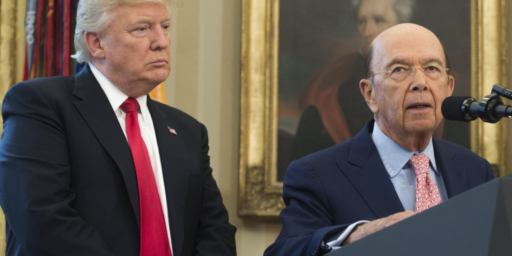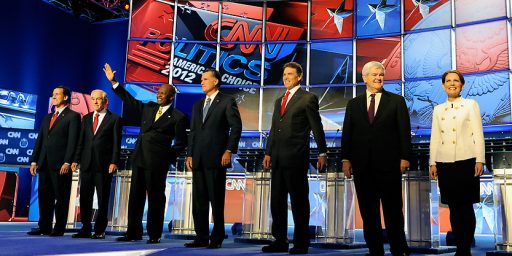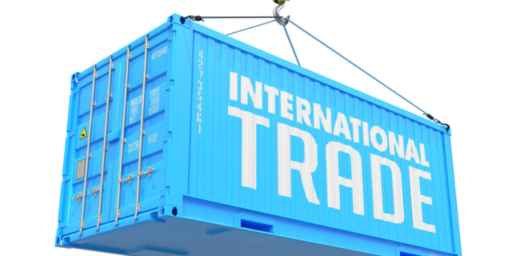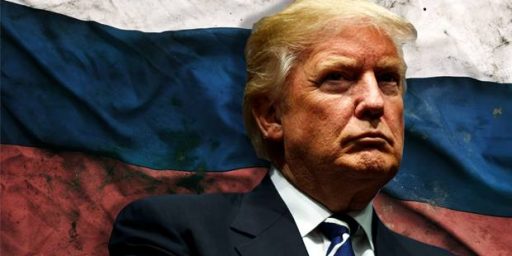Why Third Parties Fail
Britt Peterson‘s profile of Unity08’s dream of a bipartisan presidential ticket demonstrates why third parties have such an uphill fight in America. Not only is the deck stacked against them institutionally — Ross Perot, easily the most successful modern example won “19 percent of the popular vote but not a single electoral vote” — but there simply isn’t much of a market for a mishmash party.
Anyone looking for larger ideas than a return to civility won’t get much from Unity ’08, however. In our conversation, Bailey and Rafshoon wouldn’t take any policy stands, deflecting questions until after a candidate has been chosen in a “Virtual Convention” slated for next summer. “We’re not interested in spelling out or even having the delegates spell out a precise platform, where, by God, you must meet these tests or we don’t want you to run,” Bailey tells me. “That doesn’t make much sense.” Doing so, he says, would repel candidates, not attract them. Rafshoon, too, focuses on process and ethics, rather than issues. “Campaigns are run on the negatives,” he tells me. “That’s the promise they make to the people: ‘He’s no good, vote for me!'”
But the issues they do discuss don’t even seem that compatible. Bailey mentions three times the only Unity ’08 issue that’s historically a Republican idée fixe: entitlements and the deficit. “Has there been an effort by a single candidate in either party to talk seriously about the deficit and entitlements?” he asks me. On the other side of the table, Rafshoon does seem sympathetic to the idea of a candidate focusing on the deficit (he mentions in passing that one of Ross Perot’s successes was to help set Clinton’s budget-balancing agenda). But balance this issue with Unity ’08’s other, admittedly spare, stated concerns, and the whole thing begins to look a little contradictory: cutting down on entitlements while also expanding health care, reducing income equality, and cleaning up the environment? How well can a platform built on flimsy, mismatched legs stand?
Not very well, I’m afraid.
There’s no doubt that there’s a burning desire for politicians to “work together for the good of the country” and for a “return to civility.” The problem, however, is that there is intense disagreement on what’s good for the country, which makes civility very difficult.






You mean like the Republicans and Democrats, both of which are weak programmatic “catch-all” parties? How ideologically coherent our present parties look depends a lot on the scale at which you’re looking at them. From the rarified, 40,000 feet of national politics, maybe there’s some argument to be made. From the level of the local nitty-gritty, not so much. Democrats in Chicago (for example) aren’t in lock-step with those in New York.
The three most successful third parties are the republican party (1856 114 EV and knocked Whig party out of action, won in 1860 became major party), the bull moose party (1912 88 EV, sank never to be heard of again) and American Independence party (1968 48 EV, sank without a sight).
For both 1912 and 1968, you can make a good argument that they tilted the election against the party the candidate was most closely allied with (e.g. Teddy and the republicans, Wallace and the democrats).
It is much more likely that a party will change in perspective (where have all the democratic hawks gone) rather than a third party to replace them. But a third party can certainly tip an election, usually away rather than to (i.e. it takes votes, but rarely would it push people to support one of the two dominant parties).
So based on all that, I would like to see Unity 08 run a Gore/Sharpton ticket. Where do I sign up for the virtual convention.
Maybe we should go back to having the presidential candidates being picked in smoke filled rooms.